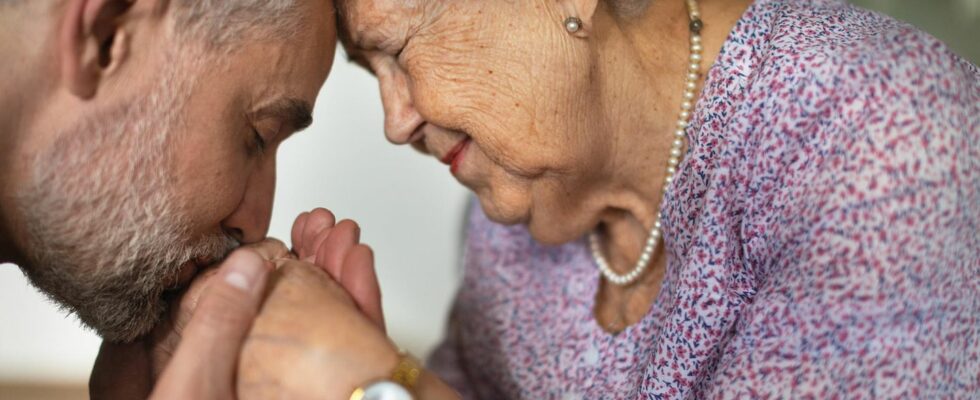Self-care in nursing
How we strengthen ourselves to be there for our loved ones
© Halfpoint / Adobe Stock
When mother, father or even a partner can no longer care for themselves, their loved ones often take on some or even all of the care. In doing so, they can lose themselves to some extent in worrying about the other person. We explain what can help relatives.
A family need for care can occur completely unprepared. Regardless of the age and health of the person who suddenly can no longer look after themselves or at least needs support in doing so – because It is not always a foreseeable illness that leads to care. Family members are then often faced with the question of what they should do next.
Some decide to take on the care themselves, others partially, and others delegate this task to specialist staff. Because It is not always possible for us to care for our loved ones the way we would like would. For example, for reasons of space or health – or because we don’t feel emotionally capable of doing so. All of these reasons also have their justification. No matter which situation applies in the end. Many people forget that not only the well-being of their loved ones is important, but also their own.
Self-love in care – for relatives
It can happen that relatives lose themselves to a certain extent when caring for their loved ones, that they no longer take care of themselves and burden themselves with too much. All of this has something to do with the fact that this person is so important to them. But they themselves are just as important to this person – just as they are to their friends and other family members – and they want the person caring for them to do well too. These tips can help relatives to some extent to relieve themselves.
Tip 1: Seek help
A need for care in the family means a lot of organization, being there for the person, problems such as determining the level of care – a lot of bureaucracy and high costs. All of this can be very stressful and poses challenges for families or those left alone. They cannot even answer the many questions that arise. After all, we don’t learn such prior knowledge on the side. Help centers such as this Care hotline of the Federal Ministry for Family Affairs can help relatives. The nursing telephone is from Monday to Thursday between 9 a.m. and 6 p.m under the Telephone number 030 20179131 and by email to [email protected] to reach. According to the consumer advice center, depending on where you live, there may be organizations that voluntary support in care offer. It makes sense to ask the local community about this.
Tip 2: Take care of yourself
It is also important to pay attention to your own needs. Questions like: What do I enjoy? Which person is good for me and with whom can I talk openly about the stress? – Caregivers should also think about themselves physically and practice self-care. Because only when we feel healthy ourselves can we be there for others.
Tip 3: Organization can relieve pressure
Doctor’s appointments, taking medication, calls to the outpatient care service, and so on. You can quickly lose track of things. It may make sense here to make use of technical aidsfor example Appswhich remind you which tablets need to be taken when – or one Alarm clock play when the authority’s opening hours start. Our brain is not able to remember all the information perfectly all the time.
Order in documents is also an important point or that Labeling medications. This can also relieve pressure and reduce errors. There are many things we can’t do right the first time. A new situation first requires that we learn and grow with our tasks – over time we get better at it. This also means that things can go wrong from time to time. This happens to the best.
Tip 4: Celebrate small successes
Anyone who cares for a relative often takes this for granted. But it is much more than that. It is an act of affection that is good for our loved ones and supports them mentally and physically. If you now take on a lot of things that another person can no longer do, then you can praise yourself for it – or accept praise for it. Be it that you were approved for the care level, that you were able to spend a nice afternoon together (even though others sometimes find it difficult because of the circumstances), that you are simply there during this difficult time. This all means so much more than we often admit to ourselves.
Sources used: bmfsfj.de, verbraucherzentrale.de, bundesgesundheitsministerium.de, psychologytoday.com

